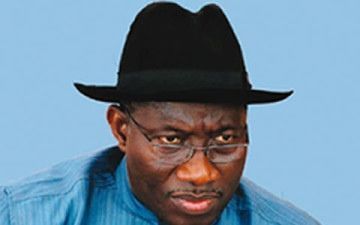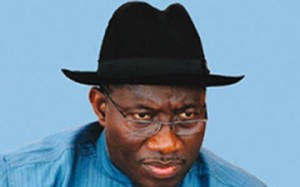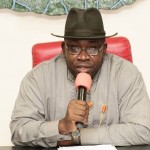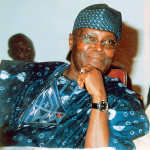Democracy: Nigerians Berate Politicians, want Govt to Tackle Corruption
Featured, Latest Headlines, News Saturday, May 31st, 2014
By Tajudeen Balogun
Exactly 15 years of her uninterrupted civilian rule, many Nigerians have viewed that the country’s democracy is still premature, non-participatory and largely characterized with poor accountability, persistent impunity by the political gladiators, disregard to the rule of law as well as full blown corruption in every facet of the society.
In a survey carried out in Lagos by the African Examiner, on the occasion of 2014 Democracy day, a cross section of the country painted an unpleasant picture, lamenting that the country political culture has remained unimpressive with the successive administration, while the economy has been overstretched, due to lack of commitment and loss of focus by the leaders.
“What we have in Nigeria is pseudo democracy as there is still large abuse of rights”, submitted a legal Practitioner, Barrister Cletus Iloha. He stated that although, President Goodluck Jonathan has demonstrated willingness to improve the economy, by gradually transforming the state of the infrastructures. Still, Iloha said the macro economy was in “doldrums owing to imbalances…” in the system. Iloha regretted that the security situation in the country is horrendous, neither the health nor the agricultural sector have so far received adequate attention from different tiers of government across the country. But despite many odds, he posited that the President has legal right to run for re-election, provided he is voted in a free and fair election.
A Public Relations practitioner, Mr. Ganiyu Olowu observed that the state of democracy in the country “is simply nothing to sing exciting tune about when doing a critical review of what a democratic government supposed to be.” On the other hand, he added that development specialists would find the country’s democratic experiment interesting.
Monsuru Iyanda, an undergraduate of the Lagos State University (LASU), berated the present administration, accusing it of creating a wide gap between the rich and poor. He declared that Nigeria absolutely has nothing to show for her 15 years of democratic rule, citing miserable situation of unemployment, poor standard of living, inflation and plummeted GDP and GNP of the country. Iyanda who is in the department of Business administration, rated security zero, especially on the failure of President Jonathan’s government to stem the escalated Boko Haram insurgency in the North-eastern Nigeria. He lamented about non affordability of tertiary education, as witnessed in some state-owned universities. He opined: “If I must be sincere, the President cannot be re-elected”, given the high level of corruption, political and economic stagnation presently in the country.
A Banker, Mrs Damola Adeyi, analyzed that there is always a synergy between declaration of war against corruption, by the government, the coordinated follow-up action, corresponding level of compliance, liquidity flow, its values and economy performance. She chronicled that when the sacked Central Bank of Nigeria (CBN), Governor, Sanusi Lamido Sanusi, “opened the cankerworms of sleazy practices by some Bank chief executives, when assumed office about five years ago”, noted although, his approach was alleged to be lopsided, yet, “the sub sector witnessed some level of discipline, hence the evident sanity and ethical practice in the industry”
Mrs Adeyi condemned the non supportive and evasive disposition of the government, when the former CBN boss beamed his searchlight on the activities of Nigeria National Petroleum Corporation (NNPC). She recalled that Lamido “repeatedly accused and challenged the missing of about $100 billion from the oil empire, yet the Nigerian Senate few days to the last democracy day cleared both the corporation and Minister of Petroleum Diazienne Allison-Madueke, declaring that no money was missing . Whereas, she continued the government had previously sacked some top management staff of NNPC on the similar allegation.
She concluded that “when corruption is allowed to thrive in government, the people, economy and the country suffer for it and this is exactly what is going on in the land today and why our money is valueless”. She reasoned that this is the basis why Nigerian system is not working. Said: “the country is in murky water”, proffering that only conscious, radical and committed efforts would salvage it.
A Political Scientist, Alhaji Nojeem Jimoh’s position is that Nigeria has had “15 years of civil rule, but no democracy yet”, although, he viewed that the present regime is better than Obasanjo’s. Jimoh who is also an oil and gas executive, expressed that President Jonathan despite all odds meant well, but “surrounded by the people who do not”. He furthered that his personal weakness has not helped his cause “as one gets impression that there are people other than him in charge”.
He said the nation would appear to be moving in the right direction, with respect to the economy and agriculture, but the same could not be said about the health, education and security. He bemoaned: “we have actually moved several years back in terms of security.” Alhaji jimoh shared with Barrister Iloh when agreed that the President has “right to seek re-election in 2015”, but cautioned that must be based on merit. However, he is reserved as to whether the President could win, yet, disclosed “I do also know that the election will not be based on merit. I think the incumbency factor and the advantages that confer would determine the outcome”.
Related Posts
Short URL: https://www.africanexaminer.com/?p=11977





















